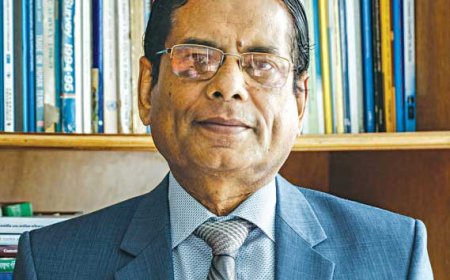The Women's Affairs Reform Commission recommends direct voting for 300 reserved seats
The Women's Affairs Reform Commission recommends direct voting for 300 reserved seats.

Women Affairs Reform Commission Proposes Direct Voting for Reserved Seats and Legal Reforms
-
The Women Affairs Reform Commission is set to propose direct voting for 300 reserved parliamentary seats for women.
-
In light of this, the commission is recommending an increase in the total number of seats to 600.
Key Recommendations:
-
Legal Reforms:
-
Amend discriminatory laws affecting women.
-
Major reforms proposed in family laws to ensure equal rights for women across all religions in inheritance, child custody, marriage, and divorce.
-
Withdrawal of reservations on CEDAW (Convention on the Elimination of All Forms of Discrimination Against Women) Articles 2 and 16.1(c).
-
-
Political Representation:
-
Political parties failing to ensure 33% female representation at all levels by 2030 (as per the Representation of the People Order - RPO) could be declared ineligible to contest elections.
-
Election of committee members in political parties, including both men and women, should be mandatory.
-
-
Women’s Rights & Welfare:
-
Six months’ maternity leave for all working women, including in private firms and garment factories.
-
Establishment of day-care centers in both government and private organizations.
-
Formation of a Women’s Rights Commission.
-
Revocation of the provision allowing marriage of girls below 18 years.
-
Implementation Timeline:
-
Recommendations will be categorized into short-term, mid-term, and long-term reforms.
-
Short-term: To be implemented by the interim government.
-
Mid-term: For the next elected government.
-
Long-term: Aimed at achieving women's empowerment and rights in line with global standards.
Commission Status & Members:
-
The Women Affairs Reform Commission is one of 11 reform commissions formed by the interim government.
-
The commission was initially scheduled to submit its report on March 30, but the deadline has been extended to April 30.
-
Chairperson: Shireen Parveen Haque.
-
Members include experts from governance, law, labor rights, women’s rights, and social development sectors.
Shireen Parveen Haque emphasized that the interim government is in a unique position to implement reforms as it is not dependent on electoral votes. The recommendations are expected to significantly improve the legal, political, and social standing of women in Bangladesh.
What's Your Reaction?




















































































